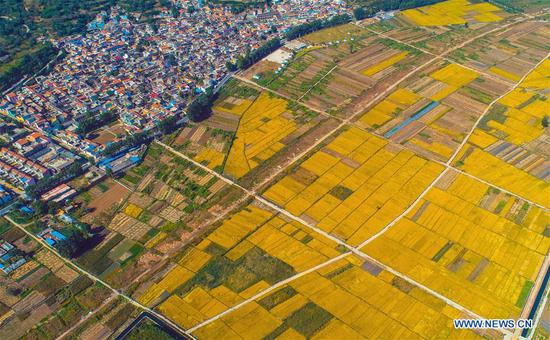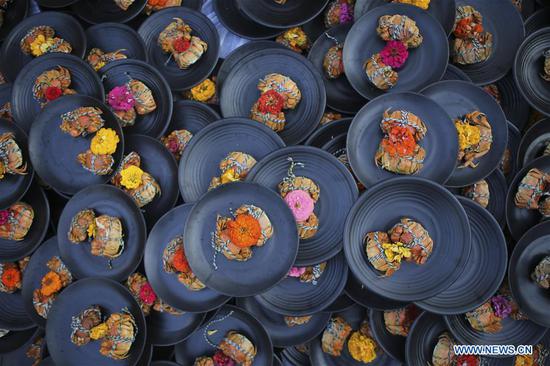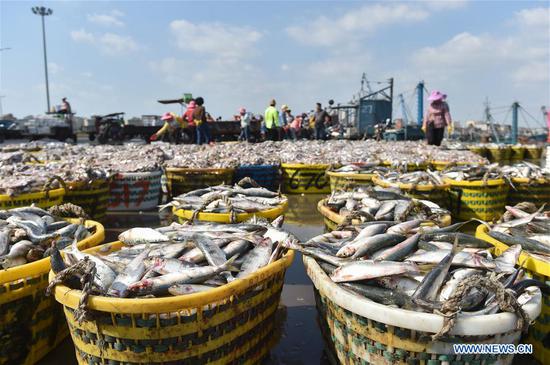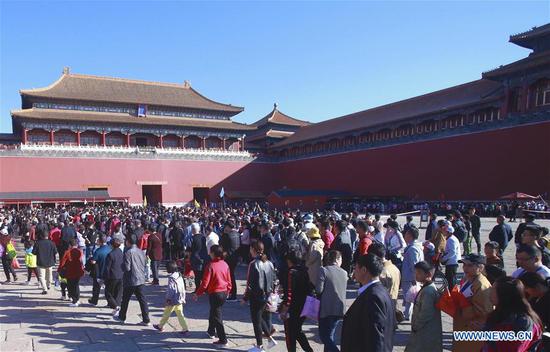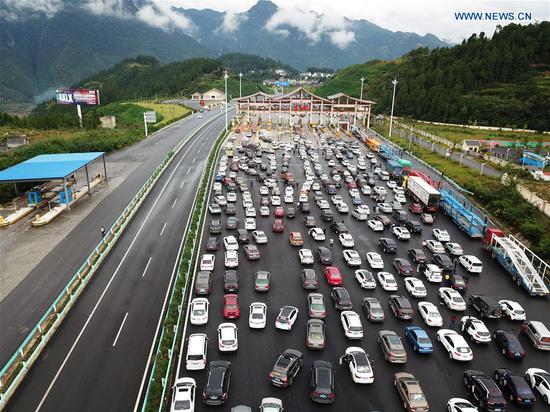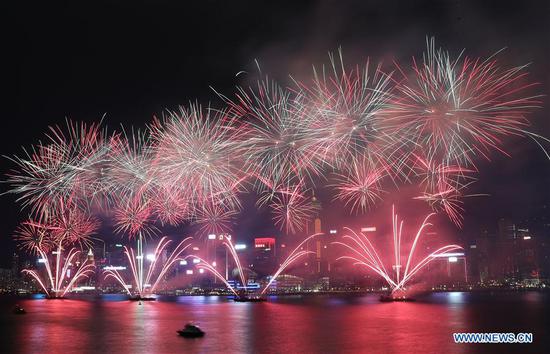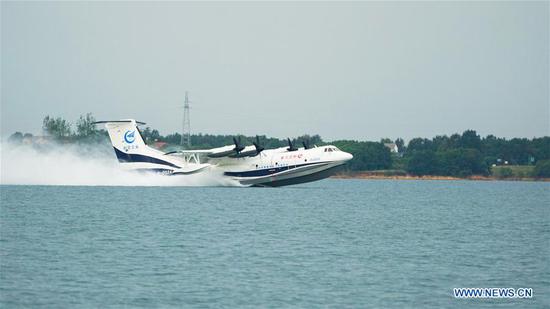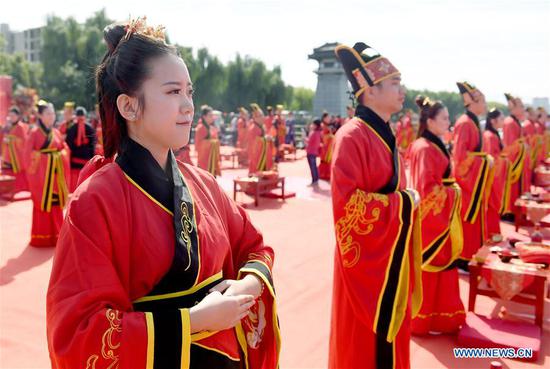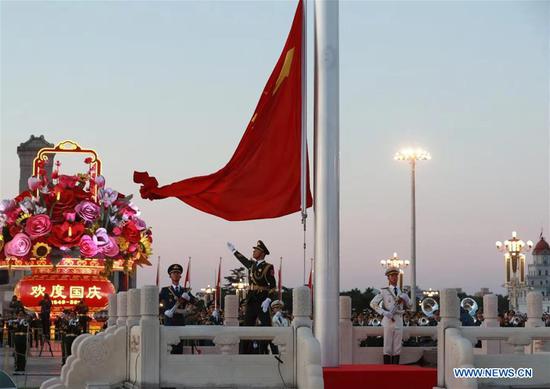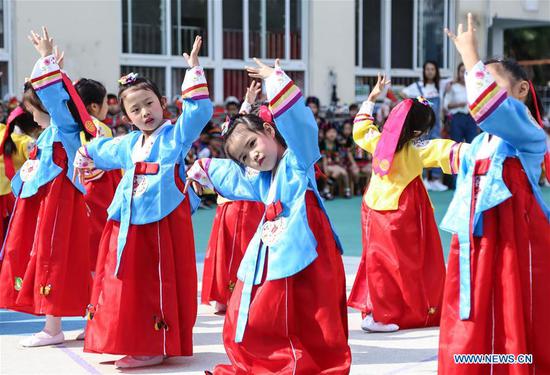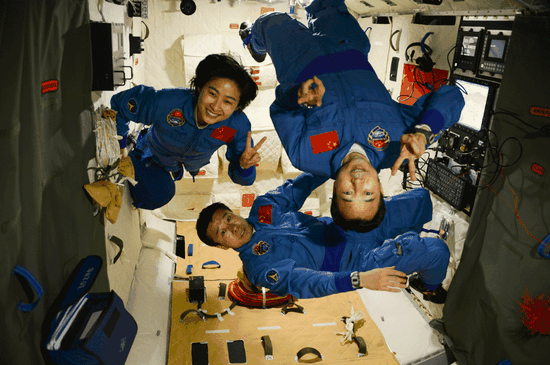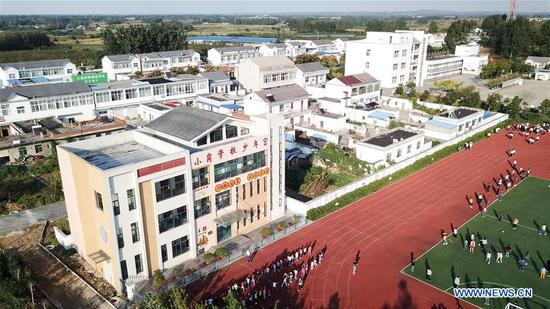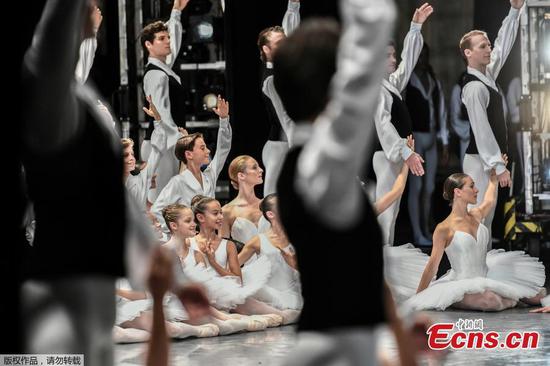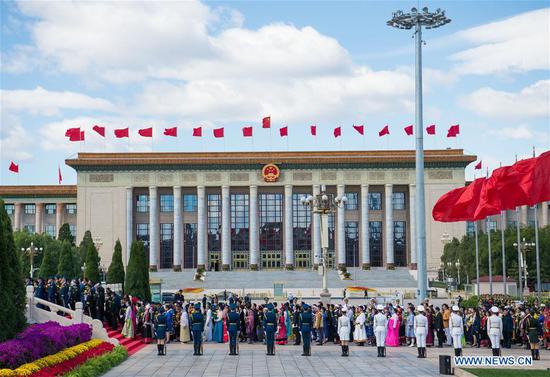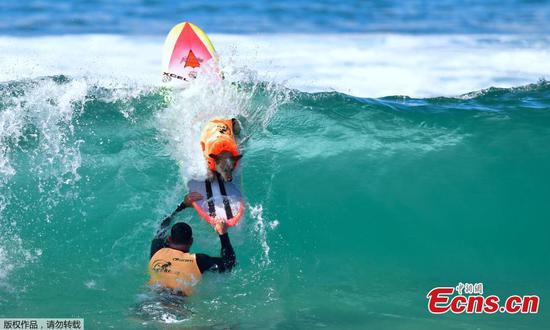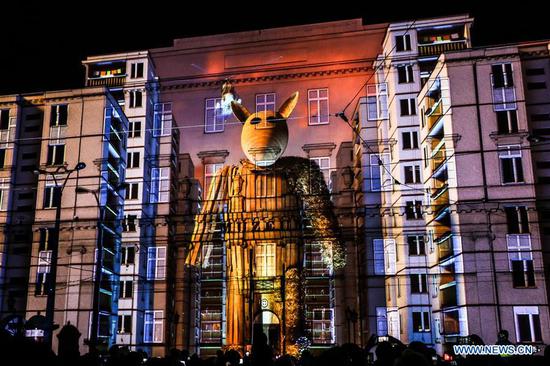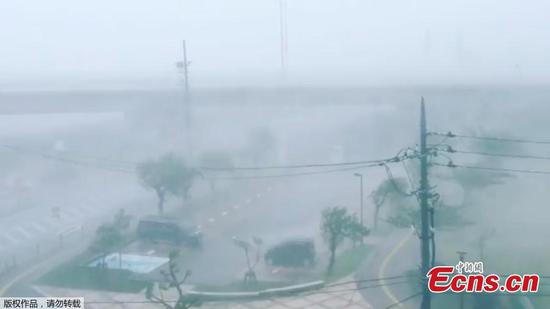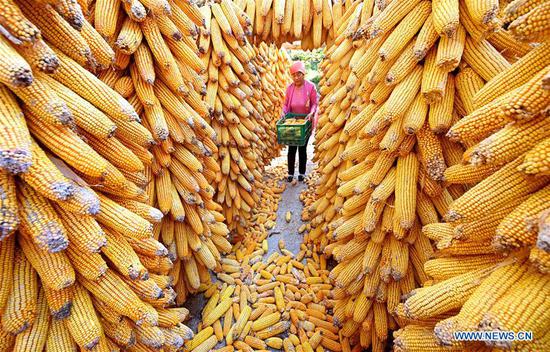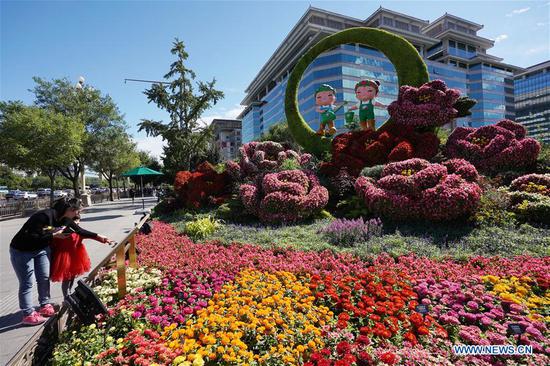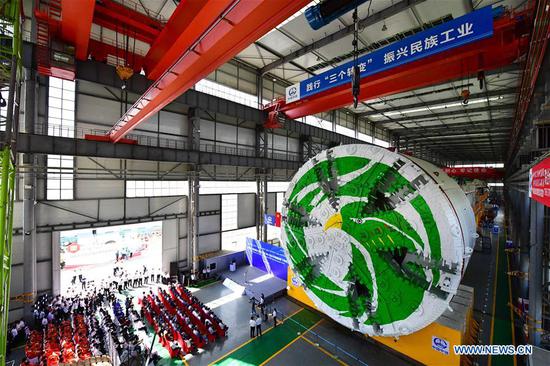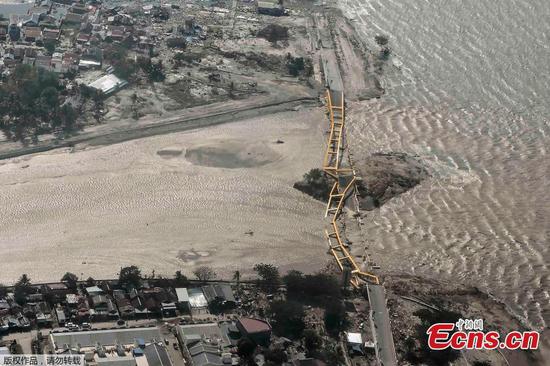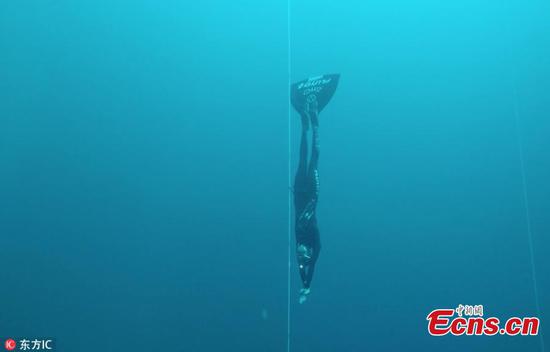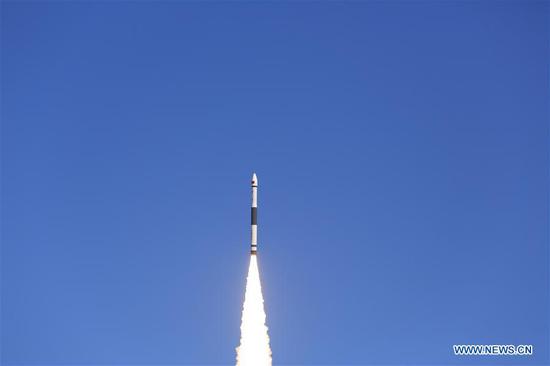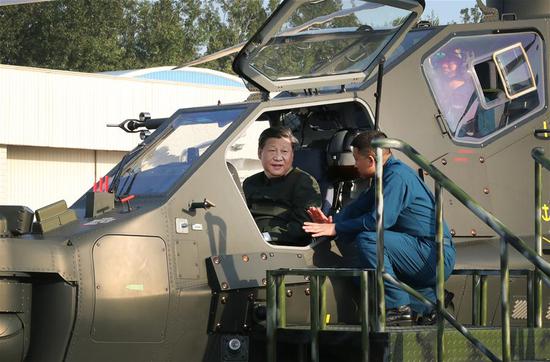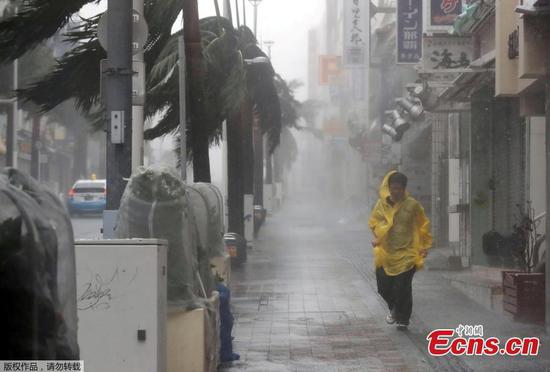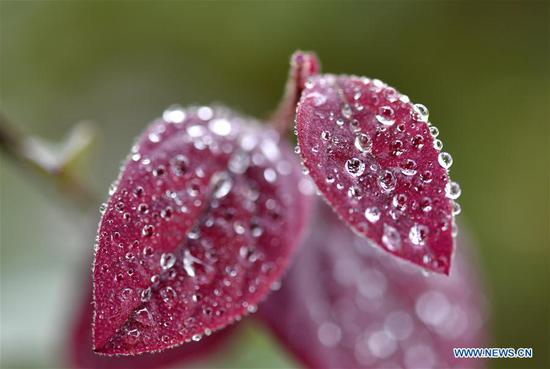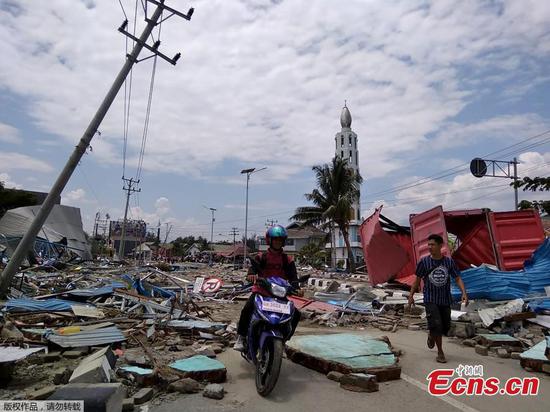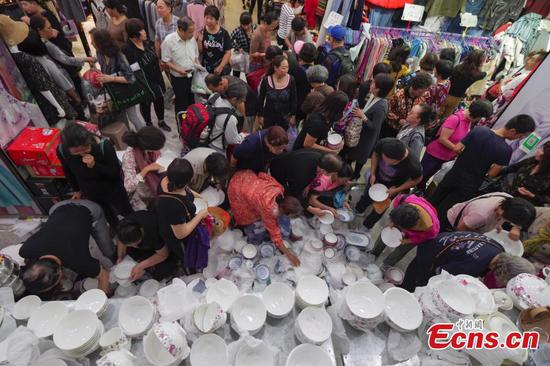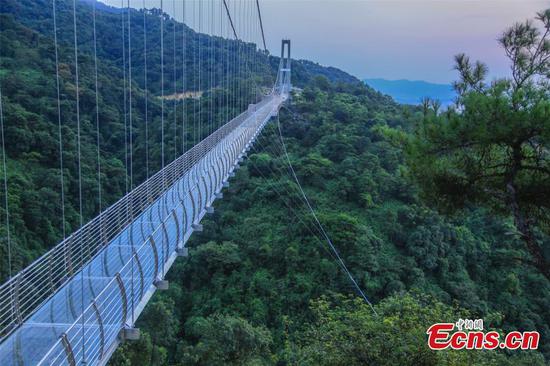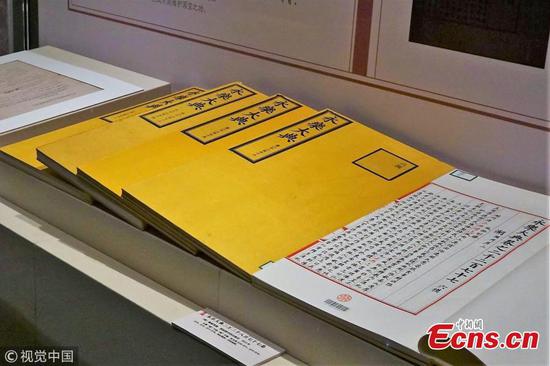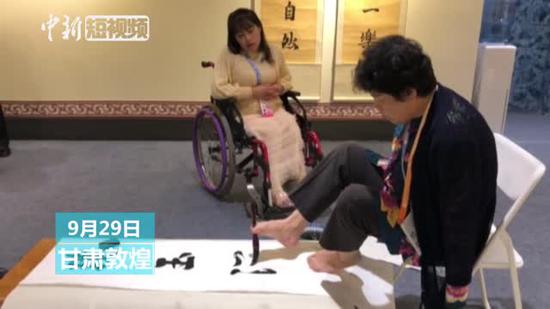With incense burning, Hega lies on her chest as a doctor inserts needles in her back, and a nurse puts a burning moxa stick on each needle.
Hega, from Russia, took her acupuncture and moxibustion therapy at a clinic in Sanya Traditional Chinese Medicine (TCM) Hospital of south China's Hainan Province.
The resort island has seen a growing number of foreign visitors flocking to receive TCM over the years. In the TCM hospital alone, foreign guests increased by nearly 20 percent last year to reach around 10,000.
To meet the rising overseas demand for TCM therapies, the hospital built an international healthcare center in 2016 to provide medical treatment specifically for foreign patients.
"The therapy is calming and comforting, I feel my body is much lighter, " Hega said. "Especially when the moxa sticks started burning, I became so relaxed that I almost fell asleep."
The session summed up the whole morning for Hega and her family. In the afternoon, they stayed at the beach for sunshine, swimming and pubs with a sea view.
This is what Hainan is priding itself on in recent years -- medical tourism -- an opportunity for visitors to have a trip that is enjoyable as well as healing.
High-end hospitals and healthcare centers have sprung up in the province with strong government policy support. In 2013, the central government set up an international medical tourism pilot zone in Bo'ao, a town near the island's east coast.
In the Lecheng pilot zone, patients can get medicine and medical equipment accredited by EU, Japan and U.S. authorities before it has been officially accredited by the Chinese government.
This provides a catch for hundreds of thousands of Chinese patients traveling abroad for treatment. In 2017, the number was around 600,000.
Many among them went for a Gardasil 9 vaccination, used to prevent a wide range of cancers caused by human papillomavirus (HPV) in females between nine and 26 years of age. The vaccine is offered only in Hong Kong and a number of foreign countries and was introduced to Hainan in May.
Huang Jing, 22, came from southwest China's Yunnan Province to Hainan to receive the vaccine. She and several college roommates had considered taking the vaccine in Hong Kong but later opted for Hainan.
"It's more convenient and reassuring to come to Hainan," Huang said. "We don't need all the travel permits and can make reservations on official platforms."
In the clinic at Bo'ao Super Hospital where Huang was vaccinated, dozens of people from across the country waited outside.
"The first batch of around 6,000 shots of HPV vaccine has been booked up," said Ye Juzhen, deputy head of the hospital. "We are working with suppliers on the second batch."
Apart from HPV vaccines, the hospital offers specialist health services that are not available on the mainland, Ye said.
Dai Xiaolong, deputy head of the medical tourism branch in the Lecheng pilot zone, said most Chinese went abroad to enjoy cutting edge medical technology and enjoy high-end healthcare services. "New medicine, medical equipment and technology, as well as customized medical services in the pilot zone, have enabled patients to travel less to reach these goals," Dai said.









